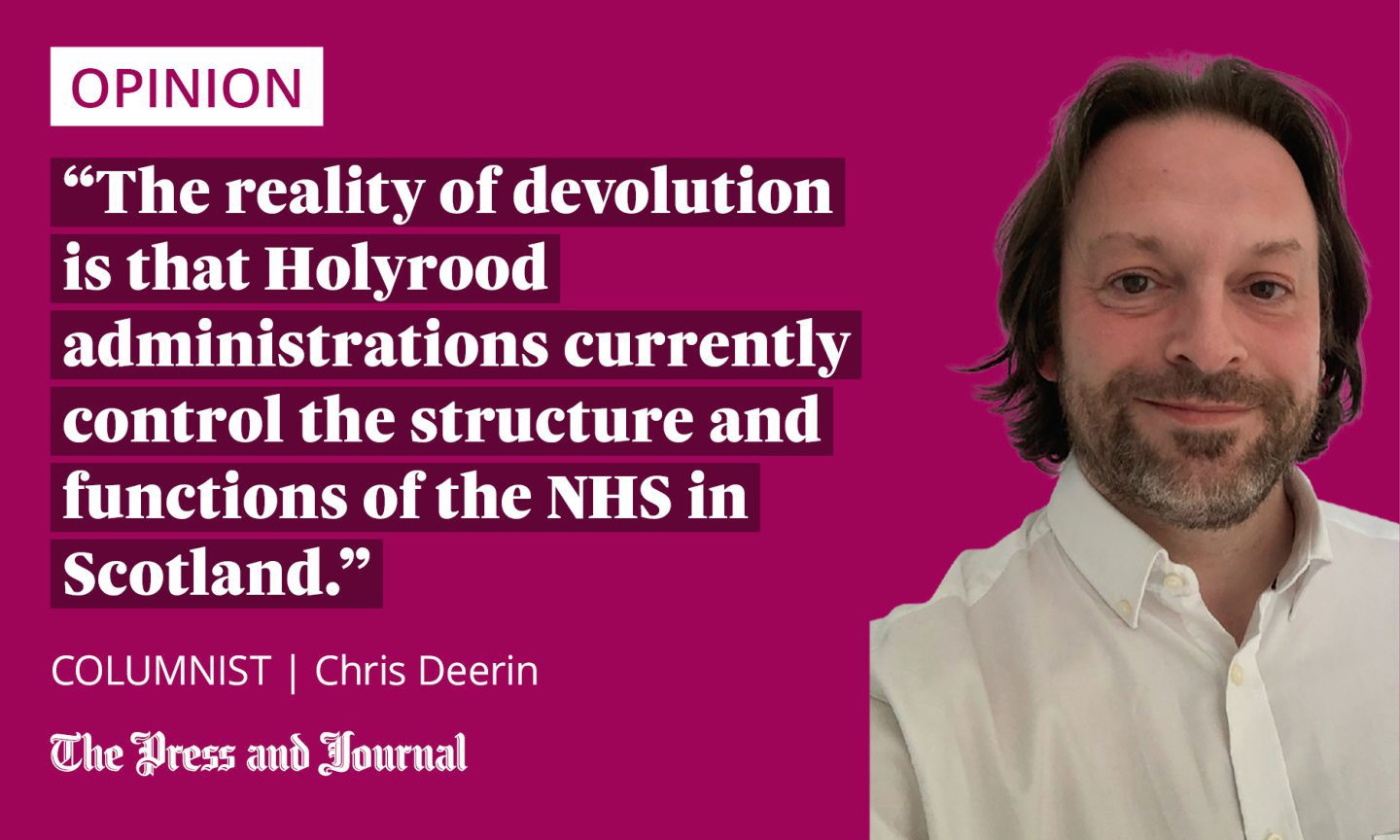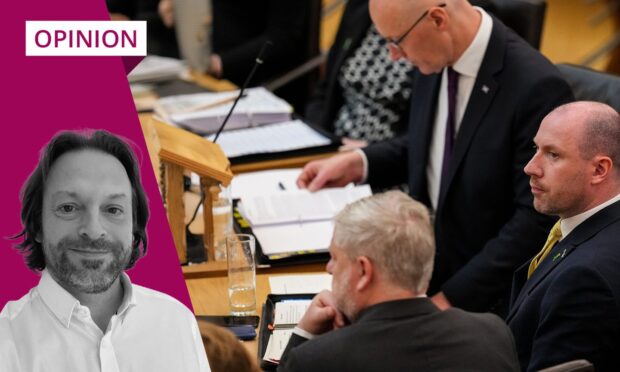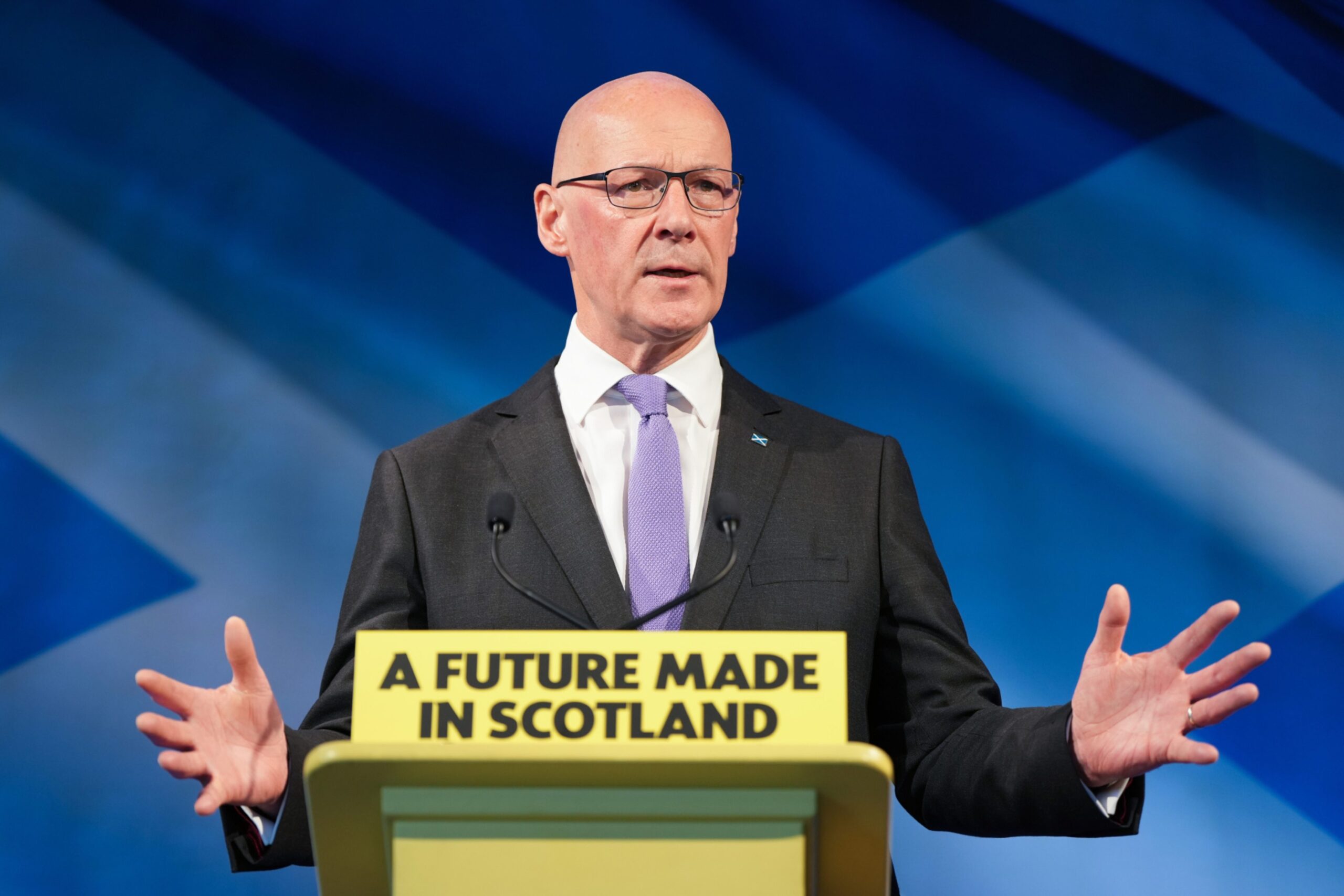You can tell that a government minister is struggling with his or her brief when, confronted with perfectly reasonable questions, they get tetchy.
In an interview at the weekend, Neil Gray, Scotland’s cabinet secretary for health, provided a perfect example of this. Rather than set out any kind of plan for reforming an NHS that is in dire straits, as he was asked to, Gray spent his time attacking – first, the media, and second, Westminster.
Long waiting lists and times, demoralised and knackered staff, huge gaps in recruitment, a lack of digital connectedness, the poisonous aftermath of Covid, and an electorate that is scunnered with the whole situation – this is the reality of NHS Scotland in 2024.
We wait, therefore, for the devolved government – which has total control over health – to get to grips with these problems. To provide a smart, convincing analysis. To show us that it takes this crisis as seriously as we do. We wait, and wait, and wait.
Gray has been in post since February, which isn’t ages, but is long enough to have begun to formulate some kind of vision. He should, after all, be able to build on a body of work left behind by his SNP predecessors at health – all six of them, including former first ministers Nicola Sturgeon and Humza Yousaf.
At this point, I imagine the many clinicians I’ve met over the past few years wearily shaking their heads. What body of work, they ask. What analysis? What vision?

Gray’s approach to the interview was the SNP’s approach to the NHS in a microcosm. He spoke of “the need for an end to austerity at a UK level and for a greater focus on public services at a Westminster level, because that has a demonstrable impact on the resources that are available here in Scotland.”
He talked about the “pernicious damage that has been done by inflation, the clear damage that has been done by the pandemic and Brexit”. Without independence, Scotland’s health budget would always be reliant on decisions made in London, he said.
This was of a piece with John Swinney’s remarks as he launched the Nats’ manifesto last week. The SNP leader effectively (and wrongly) accused Labour of planning to privatise the healthcare system, and said his party would introduce a “Keep the NHS in Public Hands Bill”. The UK Government should spend an annual £10 billion more on health so that Scotland would receive an extra £1 billion through the Barnett formula, he argued.
Swinney can bang on about “our precious NHS” all he likes, but it’s increasingly hard to see his government’s approach as amounting to much more than an attempt at distraction and division. Look, a bear, they holler, pointing south, as patients queue outside hospitals in ambulances.
The NHS is in too serious a condition for all of this nonsense. It matters too much to all of us for it to be treated as a pawn in the independence game, or for desperate, failing politicians to focus on blaming everyone but themselves.
What could SNP energy be better used for?
Of course more money would help, but the health system also has a penchant for gobbling up fresh resources without particularly improving its performance. And it’s the job of the Scottish Government to work with what it has, which is somewhat more than nothing. It has already pumped up income tax to levels that threaten Scotland’s competitiveness.
Public sector spending in 2022-23 was estimated to be around £106 billion – an increase of almost 10% on the previous year. Spending per person was £2,217 higher than the UK average.
It’s also worth pointing out that Swinney has made ending child poverty the central policy of his government. So does he want billions more for that, or for the NHS? Or for both? How would independence help with this? After all, Scotland’s total deficit is £19.1 billion, or 9% of its total GDP.
Whatever your view on our final constitutional destination, the reality of devolution is that Holyrood administrations currently control the structure and functions of the NHS in Scotland. If we stopped shouting at Westminster, what might that often wasted energy be better used for?
Doctors have ideas – politicians should listen
Clinicians and other experts have plenty of ideas for reform, including the use of social impact bonds, more weekend and evening working, and the writing-off of university costs for those medical students who stay in the Scottish NHS for 10 years.
Doctors could be incentivised to work on beyond retirement age. Funding could be passed directly to GPs and community care. Money could be saved by cutting the number of health boards. We never seem to advance on preventing ill-health from occurring in the first place, despite decades of talk.
The Holyrood election that will follow quite quickly on the heels of the general election seems likely to focus on this topic more than any other
Fixing the NHS isn’t easy, and the job of health secretary is a difficult one. Nevertheless, the Holyrood election that will follow quite quickly on the heels of the general election seems likely to focus on this topic more than any other.
Scottish Labour, aware that the cautious Keir Starmer is unlikely to deliver a major cash injection, is at least focusing on bettering the system within the available resources. If we’re to make genuine progress, the SNP needs to start doing the same. In short, it needs to stop blaming everyone else and start answering the difficult questions.
Chris Deerin is a leading journalist and commentator who heads independent, non-party think tank, Reform Scotland


Conversation